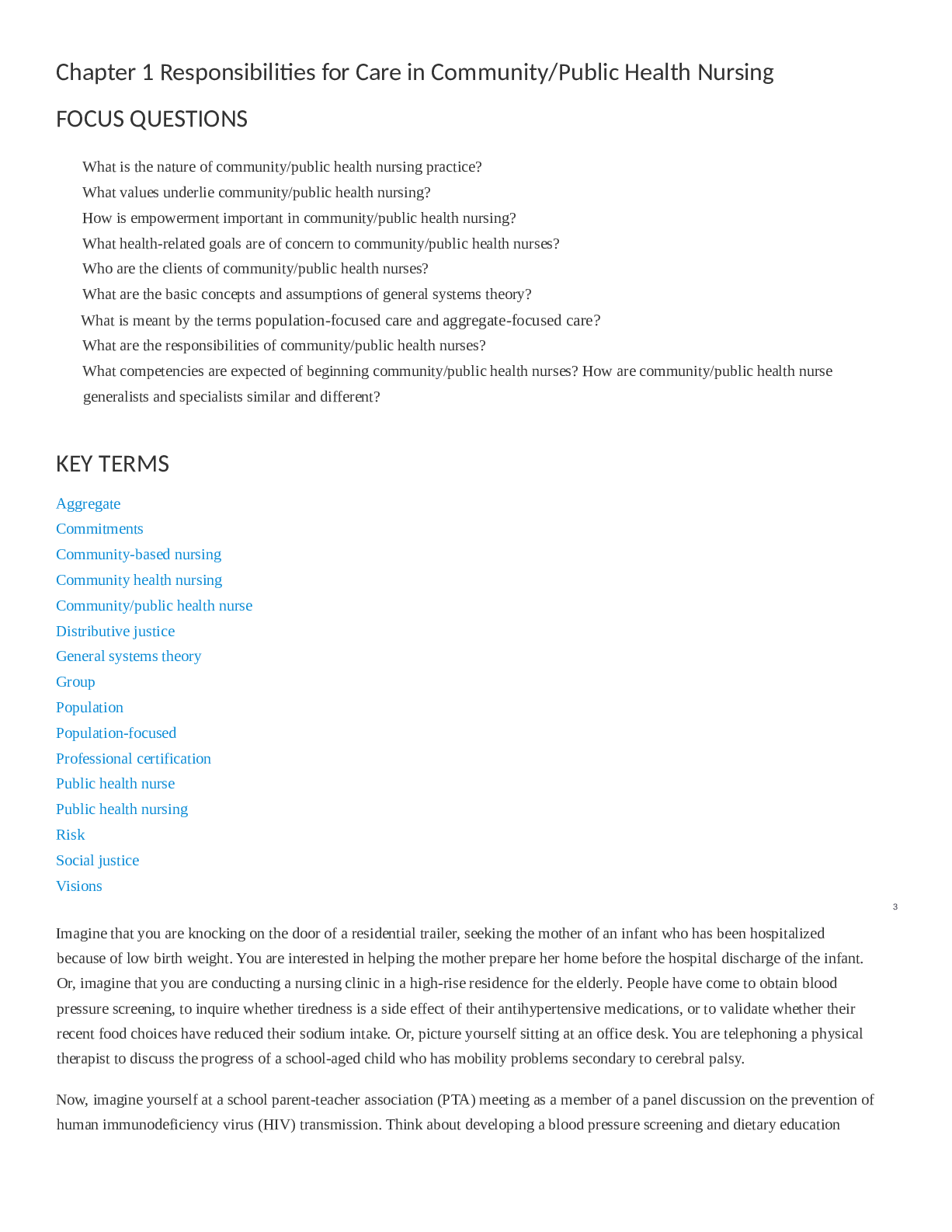FOCUS QUESTIONS
What is the nature of community/public health nursing practice?
What values underlie community/public health nursing?
How is empowerment important in community/public health nursing?
What health-related goals are of concern to community/public health nurses?
Who are the clients of community/public health nurses?
What are the basic concepts and assumptions of general systems theory?
What is meant by the terms population-focused care and aggregate-focused care?
What are the responsibilities of community/public health nurses?
What competencies are expected of beginning community/public health nurses? How are community/public health nurse
generalists and specialists similar and different?
KEY TERMS
Aggregate
Commitments
Community-based nursing
Community health nursing
Community/public health nurse
Distributive justice
General systems theory
Group
Population
Population-focused
Professional certification
Public health nurse
Public health nursing
Risk
Social justice
Visions
3
Imagine that you are knocking on the door of a residential trailer, seeking the mother of an infant who has been hospitalized
because of low birth weight. You are interested in helping the mother prepare her home before the hospital discharge of the infant.
Or, imagine that you are conducting a nursing clinic in a high-rise residence for the elderly. People have come to obtain blood
pressure screening, to inquire whether tiredness is a side effect of their antihypertensive medications, or to validate whether their
recent food choices have reduced their sodium intake. Or, picture yourself sitting at an office desk. You are telephoning a physical
therapist to discuss the progress of a school-aged child who has mobility problems secondary to cerebral palsy.
Now, imagine yourself at a school parent-teacher association (PTA) meeting as a member of a panel discussion on the prevention of
human immunodeficiency virus (HIV) transmission. Think about developing a blood pressure screening and dietary education
program for a group of predominantly African American, male employees of a publishing company. Picture yourself reviewing the
statistics for patterns of death in your community and contemplating with others the value of a hospice program.
Who would you be to participate in all these activities, with people of all ages and all levels of health, in such a variety of settings
—homes, clinics, schools, workplaces, and community meetings? It is likely you would be a community health nurse, and you
would have specific knowledge and skills in public health nursing.
Notice that we have used the terms community health nursing and public health nursing. In the literature, and in practice, there is
often a lack of clarity in the use of these terms. Also, the use of these terms changes with time (see Chapter 2). Both the American
Nurses Association (ANA, 1980) and the Public Health Nurses Section of the American Public Health Association (APHA, 1980,
1996) agree that the type of involvement previously described is a synthesis of nursing practice and public health practice. What
the ANA called community health nursing, the APHA called
public health nursing (Box 1-1)
Read More


